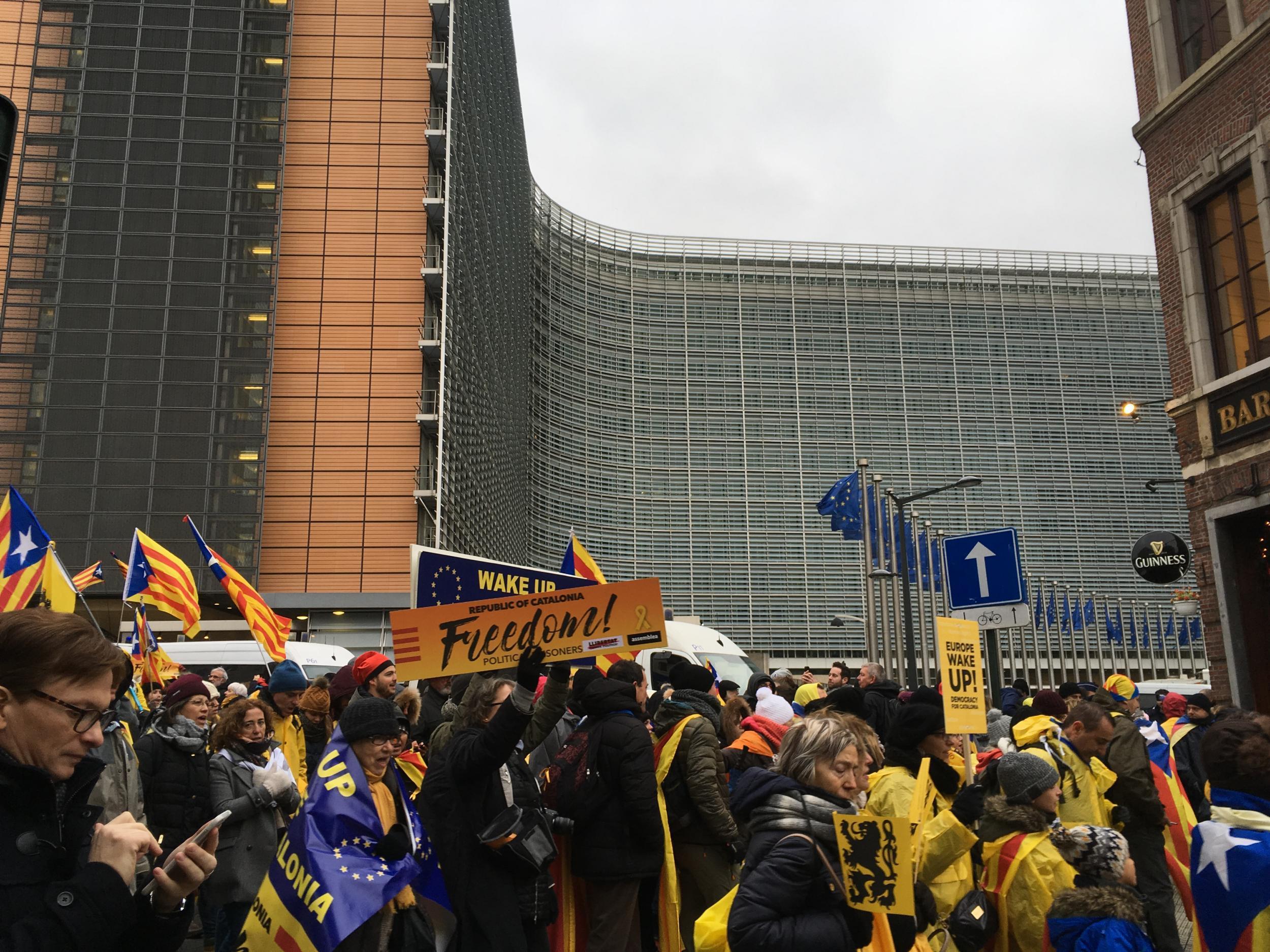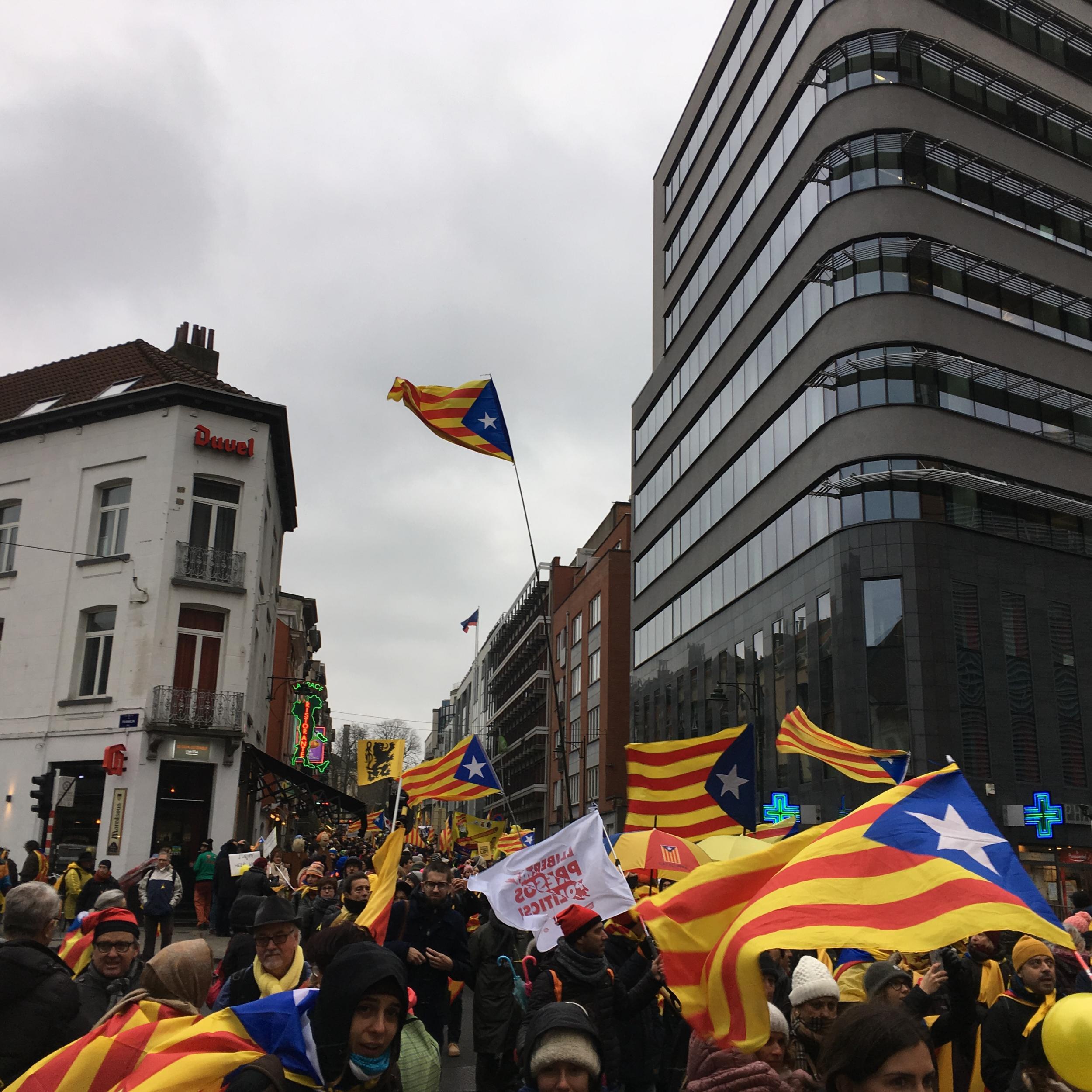Catalan independence: 45,000 protesters march in Brussels to support exiled president Carles Puigdemont
Demonstrators also want the EU to support Catalan independence

Around 45,000 protesters have taken to the streets outside EU institutions in Brussels in support of Catalan independence.
The demonstration is partly in solidarity with exiled and disputed president Carles Puigdemont, who has himself fled to the EU capital in Belgium and is resisting extradition attempts.
But the Thursday march is also aimed at putting pressure on EU institutions to support the region’s cause – support which has so far been totally absent.
Police figures suggest the protest was over twice as large as expected, with official predictions before the march that just 20,000 demonstrators would show up.
In the grey and damp Belgian weather, demonstrators carried Catalan flags, sang songs, and chanted “Wake up Europe”. Others carried banners with EU flags emblazoned with “Shame on you” – a criticism of the EU’s support for the government in Madrid.
Some locals who joined the march also carried the yellow lion rampant flags of Flanders, the wealthy Dutch-speaking region of Belgium. Flanders, like Catalonia, has a separatist movement and its separatist parties are allies at the European level with Catalonia’s.
That alliance led to one Flemish immigration minister suggesting Mr Puigdemont could apply for asylum in Belgium – though he has not formally taken up the offer.

The protest was overwhelmingly peaceful, with families with children present in large numbers. Helicopters could be seen and heard overhead along the route of the march.
Belgian police were joined by soldiers with assault rifles – a common sight on the streets of Brussels in light of recent terrorist attacks – to guard the route of the march, which gathered at a large park near the Berlaymont building, the headquarters of the European Commission, before snaking through the capital.
A large proportion of the protesters arrived by chartered coach, taking the 12-hour drive through France from Catalonia.
The demonstration is the first show of force by Catalan independence supporters in Brussels, where small pro-Madrid demonstrations have been a common feature of Mr Puigdemont’s public appearances.
The European Commission has so far said it supports Spain’s constitution; it has not offered to mediate the dispute.
A European arrest warrant sought by the Spanish government was cancelled by a Spanish judge earlier this week after he ruled that Mr Puigdemont was not applicable for one.
The disputed regional president has said he will stay in Belgium until at least the 21 December Catalan elections, called by Madrid after the central government suspended home rule in the region.
He and other members of his former government are facing charges of sedition, rebellion, and misuse of public funds relating to their calling of an independence referendum on 1 October and a later unilateral declaration of independence by the Catalan parliament. Some ministers have returned to Spain to face their charges, while a core remain with him in Brussels.
The referendum was declared illegal by Spain’s constitutional court in Madrid and national police were dispatched to the province to storm government ministries to look for evidence of wrongdoing, seize ballot boxes, and close down polling stations by force.
Join our commenting forum
Join thought-provoking conversations, follow other Independent readers and see their replies
Comments
Bookmark popover
Removed from bookmarks